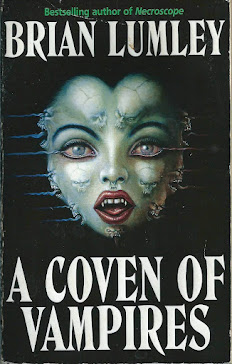Book Review: 'Interfaces' by Ursula K. Le Guin and Virginia Kidd
2 / 5 Stars
‘Interfaces’ (310 pp) was published by Ace Books in February, 1980; the cover illustration is by Alex Abel.
In the Introduction – which consists of an interview with each of the editors – Ursula Le Guin and Virginia Kidd declare that ‘Interfaces’ is indeed primarily an sf anthology, despite the cover allusions to ‘Speculative Fiction’. ‘Interfaces’ contains original stories (and poems) written exclusively for the anthology by both established, and new, writers.
Needless to say, 'Interfaces' is dedicated to showcasing the New Wave movement, even though by 1980 the movement was plainly exhausted, both creatively and economically.
My capsule summaries of the contents:
‘The Reason for the Visit’, by John Crowley: an author has conversations with the ghost of a deceased writer. This story is as lame as it sounds.
‘Set Piece’, by Jill Paton Walsh: slight fable about two young men, and the paths they choose through Life.
‘Everything Blowing Up: An Adventure of Una Persson, Heroine of Time and Space’, by Hilary Bailey: Michael Moorcock’s heroine Una Persson journeys across the ever-changing landscape of the Multiverse on an important mission.
‘The New Zombies’, by Avram Davidson and Grania Davis: The best story in the anthology. Davidson and his wife tell a tale of San Francisco, the seamier aspects of its hippy culture, and the unpleasant activities hidden under the peace and love vibe. Sits alongside Harlan Ellison’s ‘Shattered Like A Glass Goblin’ as a shrewd exploration of the squalid nature of the hippy generation.
‘Earth and Stone’, by Robert Holdstock: a time traveler from the future journeys to the British isles of 3,000 BC to study a Neolithic tomb-building tribe. He discovers disturbing rituals, and a world-view traumatic to his sensibilities. This story has the underpinnings of a good tale, but its unwieldy length, self-absorption with ancient languages, and the histrionics of the main character, leech too much momentum from the narrative.
‘A Short History of the Bicycle: 401 BC to 2677 AD’, by Michael Bishop: an effort at a humorous, vaguely satirical ‘speculative’ fiction piece, involving a planet where bicycles are living beings. The worst story in the anthology.
‘Shadows, Moving’, by Vonda McIntyre: aged person makes the Final Journey. Tries to mix pathos and quasi-religious optimism, but winds up just…..unremarkable.
‘The Pastseer’ by Philippa C. Maddern: the wise woman of a primitive tribe channels the Jungian consciousness of her people in order to direct their migrations. Trouble sets in when she has visions of otherwordly intent. Imaginative, if handicapped with too-vague an ending.
‘Hunger and the Computer’ by Gary Weimberg: spaceman confronts dysfunctional machinery. Unsuccessful effort at a ‘Twilght Zone’- style story.
‘Household Gods’ by Daphne Castell: offbeat take on the ‘alien invasion’ story. Another of the better entries in the anthology.
‘Bender, Fenugreek, Slatterman and Mupp’ by D. G. Compton: regimented life in a near-future dystopia. A more cleanly-written, coherent short story than the type Compton usually wrote, so I was pleased.
‘Precession’ by Edward Bryant: a man is afflicted by a unique ailment that abruptly places him out of phase with the passage of time. An interesting concept, but Bryant’s use of a too-figurative prose style, and a focus on the Heartache of Sundered Relationships, fails to sustain.
‘A Criminal Proceeding’ by Gene Wolfe: labored satire of a trial set in a future Idiocracy. The second-worst tale in the anthology.
‘For Whom Are Those Serpents Whistling Overhead ?’ by Jean Femling: bored housewife encounters a mythical creature.
‘The Summer Sweet, the Winter Wild’ by Michael G. Coney: the gestalt consciousness of a caribou herd serves as the third-person narrator of an eventful period for the herd.
‘Slow Music’ by James Tiptree, Jr (i.e., Alice Bradley Sheldon): as Cosmic Reincarnation grips the Earth, a young couple embark on a fateful romantic relationship. Somewhat unlike Tiptree’s usual man + woman stories of the mid- to later- 70s, the conflict between the genders is more nuanced, and less acerbic, than he (she) usually portrayed such topics..
The anthology features a number of short (one page) poems, all of which are not really recognizable as sf.
In summary, ‘Interfaces’ is neither any worse, nor any better, than the other short story anthologies released during the New Wave era.
‘The New Zombies’ can be found in dedicated Davidson anthologies, so potential buyers must weigh the value of the other stories in ‘Interfaces’, as they come to their decision.
Showing posts with label Interfaces. Show all posts
Showing posts with label Interfaces. Show all posts
Saturday, May 25, 2013
Labels:
Interfaces
Subscribe to:
Posts (Atom)

























